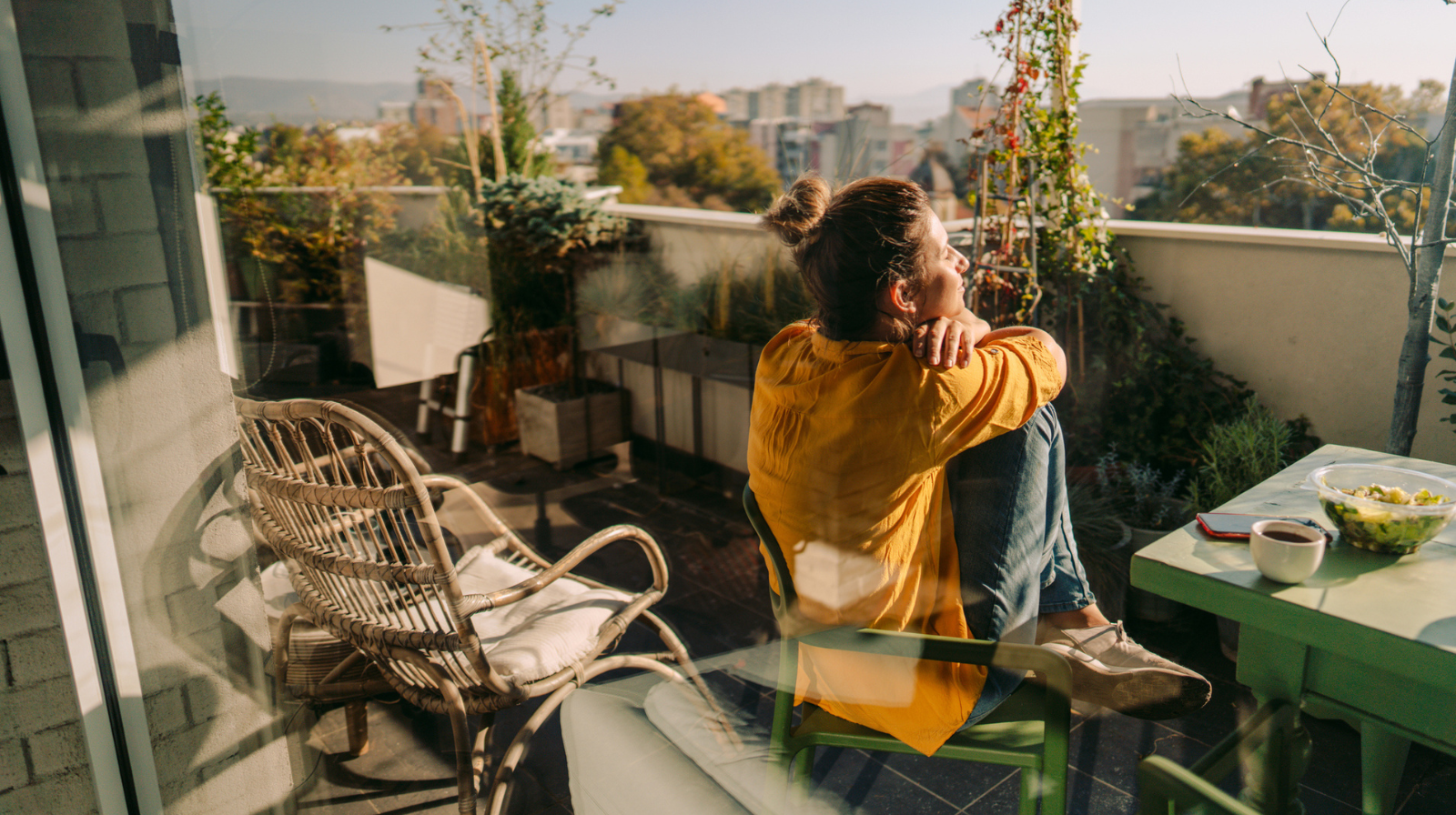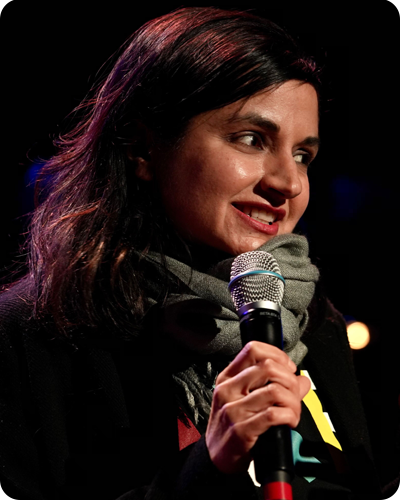Design Your Digital Diet for Mental Health

Subscribe to Catalyst
Subscribe to get our magazine delivered right to your inbox
Related Articles
Related Articles
Are you reading this in the bathroom? You wouldn’t be the first.
Digital culture has invaded intimate parts of our lives – bedrooms, dinner tables – and in those formerly stolen moments like the line at the grocery store or, dangerously, sneaking a glance while driving.
Those notes, texts, scrolls, and posts add up until it becomes a habit – and that becomes the stuff of your life. Your mental space is crowded.
Increasingly, I hear friends and strangers say they want their brains back. They’re looking for meaningful ways to do that – a new hands-on hobby like the piano – or they’re installing concentration apps.
Thinking in Facebook posts
I remember reading a think-piece where the author talked about missing important life moments, such as observing a toddler’s first steps, and how his brain was already focused on filming it or even mentally drafting a tweet about it. I’ve caught myself doing something similar and missing the beauty of the moment. It’s insidious. Suddenly we think more about performing our lives over living them.
So, what can we do? Johann Hari’s book Stolen Focus: Why You Can’t Pay Attention (2022) notes that simplistic solutions like, “just don’t touch your phone” don’t reflect the realities of how these devices are engineered.
They are designed to release dopamine making us spend way more time than we intended to, says Sophie H. Janicke-Bowles, a media psychologist and associate professor at Chapman University in California, in Psychology Today. Janicke-Bowles says, we need to know what “healthy” tech use actually looks like to foster it.
Technology differs in each of our lives
That’s why we’ve called this piece “design your digital diet.” It reflects the differing natures and needs of our technology use. Yes, we know – we’re online telling you to go away from the screen. However, is that not the challenge of our times? A digital diet means different things to different people. For example, a colleague uses the saying “sunshine before screen time,” to start and set the tone for the day. It works for her.
Making plans, ordering food, requesting a lift, looking for a date, finding a new shirt, or applying for a job requires interaction with a screen. It also taxes our mentality, time, focus, sense of self, and relationships.
To be sure, there are positive aspects. At the Mental Health Commission of Canada, we develop, promote, and encourage the use of quality, safe, culturally appropriate electronic mental health tools to bridge gaps in the healthcare system. Instant mental health care in your pocket. That’s a plus.
All to say, we can’t stop technology, but we can advocate for more control in the way it’s used so that we don’t ruin our capacity to pay attention.
Pay attention to your friends
The watering hole in my neighbourhood has a “pay attention to your friends” sign on the wall and printed on the menu. It’s part scolding and part invitation to disengage and reengage in a lost art – eye contact and conversation. The place is moody, low lit, and has great service – that should be enough to take us away from the vortex of our phones, yet it’s not. This nudge is kind of like holding up a mirror – um, duh, when did this phone thing become so normalized? If we need to be reminded, then it’s hard to wonder why we have a loneliness epidemic. I try to frequent that place. Elsewhere, it feels like everyone is always looking down, more engrossed in screens than in other humans’ expressions.
Surgeon says
When the U.S. surgeon general weighs in, you know stuff is serious. In June 2024, Dr. Vivek H. Murthy called for health warning labels on social media to address youth mental health issues. An advisory is reserved for significant public health challenges that require the nation’s immediate awareness and action – though, I’d argue it’s not confined to America, social media crosses borders.
The advisory notes that because adolescence is a vulnerable period of brain development, social media exposure during this period warrants additional scrutiny. Extreme, inappropriate, and harmful content continues to be widely accessible by children and adolescents, it notes, while underscoring the fact that social media also provides positive interactions and social support, especially for youth who are marginalized, including racial, ethnic, sexual, and gender minorities.
It notes that researchers believe that social media exposure can overstimulate the reward centre in the brain and, when stimulation becomes excessive, can trigger pathways comparable to substance use or gambling.
The features that keep us hooked are burrowing our brains: push notifications, autoplay, infinite scroll, likes and hearts, and algorithms that continually serve us the things we want. Ding! Ping!
Feel it
This technological invasion can manifest in strong responses: periods of complete disconnection or an engagement with more haptic elements – hands-on woodworking, say, or a new vinyl collection. For many, it’s also about re-engaging with in-person experiences like live theatre or concerts.
I like those shows where phones are banned. An early 2024 Trevor Noah comedy gig made me feel really present. I observed the design details of the old theatre, people’s reactions, the stage set up, and the issues being dissected through trenchant comedic bits. It took a security-endorsed phone ban to feel that good.
There was relief in taking in the experience unmitigated by a sea of small screens and feeling that collectivity. I admit wanting to steal a snap for my feed or personal memories. I also remember the olden days when we simply bought the t-shirt to say, ‘I was there.’
This is a generational bridge. Ensconced in a Gen X frame of reference, I straddle virtual and offline worlds. I know what it is to have made a call on a dial phone using a number I memorized – sometimes from a phone booth. I write in cursive, mail letters on paper, handled and paid in cash, read newspapers, found a location on a paper map, a phone number in the phone book, looked up something on microfiche, made mixed tapes as a form of flirtation and social currency, and took photos on film and had to wait until they came back from the camera shop – or 1-hour photo for the impatient – to see how they turned out. I often wonder about the different experiences of digital natives.
Another longing from an older era would be the craft of storytelling – whether it be oral histories or the written word – to convey meaning or share personal narratives. The essay The Crisis of Narration by Byung-Chul Han traces the change in storytelling. Once a communal bond over campfires that connected us to our pasts and provided a picture of the future, now those settings have been replaced by screens. The author calls this a transition to storyselling, a distinction that removes the artfulness and puts our personal lives into a commercial frame, which is, in essence, what we are doing. Like the saying goes, in social media, you are the product.
Ultimately, our relationship with technology is personal. We have to design our digital diet to reflect our realities, values, and needs – and consider the way it can enrich our lives. Mindful choices and intentional pauses can mitigate some of the nefarious effects of technology to support our mental well-being.
Log in, share your ideas for better digital engagement, and then log out for another activity. Books, friends, outings, or a digital pause. We’re crowdsourcing ideas on maintaining a balance. What do you do? Tell us on social media or via email: mhcc@mentalhealthcommission.ca. (We aren’t accepting postcard submissions, but we probably should).
Further reading: Tech Support: Online mental health support is breaking down barriers. We look at the potential of artificial intelligence and strategies for avoiding pitfalls.

Fateema Sayani
Fateema Sayani has worked in social purpose organizations and newsrooms for twenty-plus years, managing teams, strategy, research, fundraising, communications, and policy. Her work has been published in magazines and newspapers across Canada, focusing on social issues, policy, pop culture, and the Canadian music scene. She was a longtime columnist at the Ottawa Citizen and a senior editor and writer at Ottawa Magazine. She has been a juror for the Polaris Music Prize and the East Coast Music Awards and volunteers with global music presenting organization Axé WorldFest and the Canadian Advocacy Network. She holds a bachelor’s degree in journalism, a master’s degree in philanthropy and nonprofit leadership, and certificates in French-language writing from McGill and public policy development from the Max Bell Foundation Public Policy Training Institute. She researches nonprofit news models to support the development of this work in Canada and to shift narratives about underrepresented communities. Her work in publishing earned her numerous accolades for social justice reporting, including multiple Canadian Online Publishing Awards and the Joan Gullen Award for Media Excellence.